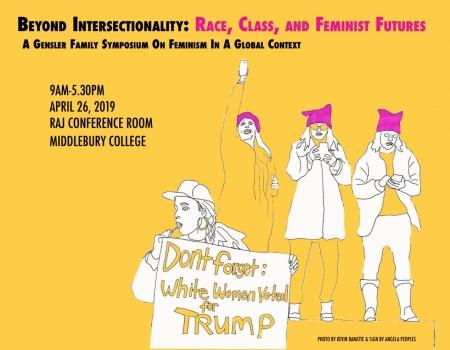2019 Gensler Family Symposium: Travelling While Black (Feminist Theory): A Quantitative Analysis of Intersectionality's
–
Robert A. Jones '59 Conference Room148 Hillcrest Road
Middlebury, VT 05753 View in Campus Map
Open to the Public

J Finley, American Studies at Middlebury College, Carly Thomsen, Gender, Sexuality, and Feminist Studies at Middlebury College
Starting from the position that it is more epistemologically and politically powerful to state that our feminism is anti-racist and anti-capitalist than to say it is “intersectional,” we ask: How are academic and activist approaches alike both emboldened and limited by intersectionality? Finley and Thomsen, along with their Research Assistants Harper Baldwin and Nell Sather, begin to answer this question by drawing on our mixed-methods and multi-sited data set, the first quantitative analysis of “intersectionality.” More specifically, we explore how “intersectionality” circulates in the following sites: feminist, legal, and critical race academic journals; Twitter accounts associated with the 2018 Women’s March and Black Lives Matter movement; explicitly conservative and liberal media; a survey we conducted at Middlebury College; and job application materials submitted for a recent position in Gender, Sexuality, and Feminist Studies at Middlebury College. In so doing, we consider the circulation of the term “intersectionality” and the citational practices that have enabled its institutional and political cache.
- Sponsored by:
- Gender, Sexuality, & Fem Studies
- Related URL:
- http://go/intersectionality
Contact Organizer
Zz Perkins, Susan
perkins@middlebury.edu
(802) 443-3112

